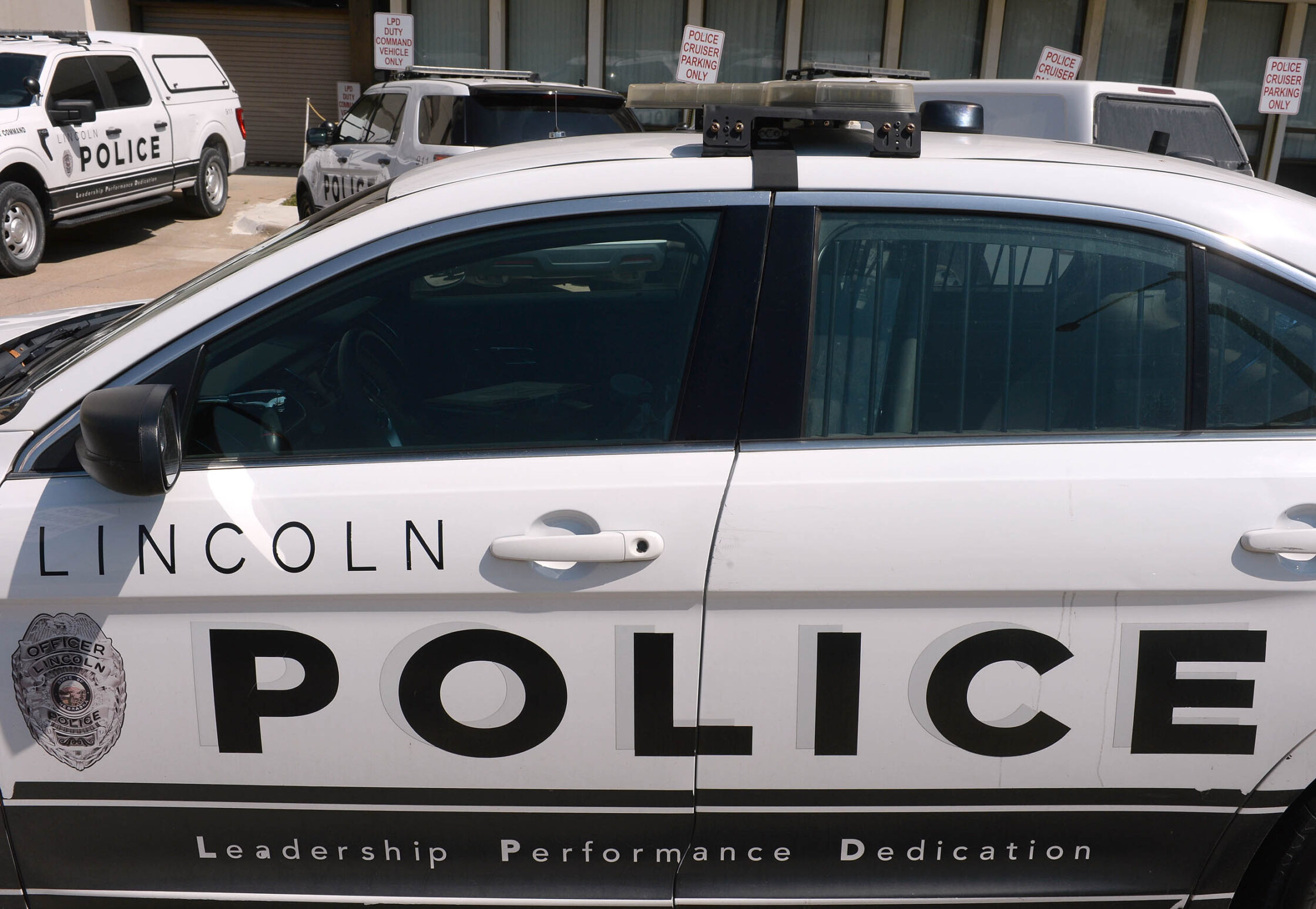After reaching a settlement with the Lincoln Police Department over allegations of retaliation for reporting sexual assault, former officer Sarah Williams addressed the Lincoln City Council at a public meeting in December 2021.
She said she was there for two reasons: to reclaim her voice and to inform the council that sexual harassment and discrimination within the Lincoln Police Department are still pervasive.
“Nothing changed, and I was retaliated against,” Williams told the council – a statement at the core of several additional employment cases against the city.
Since 2016, the City of Lincoln has paid more than $3.5 million to resolve six lawsuits brought by former employees alleging workplace discrimination, retaliation and harassment, according to information Flatwater Free Press obtained through a public records request. In that same time, the City of Omaha paid $2.2 million to resolve 13 lawsuits by former employees.
The City of Omaha has 2,841 full-time employees. Lincoln had 1,967 in 2023.
All of the cases in Lincoln originated from two departments: police and fire. Omaha’s were spread across seven city departments.
And the City of Lincoln could face more payouts. At least six lawsuits filed by current and former LPD officers alleging similar claims are pending in court, a number signaling to experts that a larger issue may persist in Lincoln – at a cost to taxpayers. (Correction: This story has been updated throughout to note that there are at least six active lawsuits against the city, and to note that one of those involves a current LPD officer.)
“To be getting sued like that so frequently tells you that there are systemic problems within an agency that have gone unresolved,” said Richard Rivera, a national police practices consultant. “If not, people wouldn’t be complaining the way they are.”
Lincoln city leaders, including the police chief, city attorney and Mayor Leirion Gaylor Baird, declined interview requests for this story. The fire chief did not respond to requests for comment.
The city has denied any wrongdoing in the settlement agreements reviewed by Flatwater. Comments to local media have largely focused on the city’s commitment to prevent discrimination and harassment.
In a statement to Flatwater, a city spokesperson pointed to an external review of police department policies and resulting city-wide policy changes as evidence that the city takes the complaints seriously.
Those efforts have failed to translate into results, according to former officers.
“There’s the whole mantra of, ‘If you see something, say something,’” said Luke Bonkiewicz, a former Lincoln police officer who sued the city earlier this year. “Well, I saw a bunch of things, and I said a bunch of things, and I got punished for it.”
Four of the six officers currently suing the city allege they were subject to internal affairs investigations after making complaints. In court filings, all six describe a work environment where harassment and discrimination were widespread, and complaints often ignored or cause for retaliation.
Of the six, only one officer still works for the Lincoln Police Department. Four of them were fired under former Police Chief Teresa Ewins, who resigned in July 2023 after less than two years on the job. (Correction: This story has been corrected to note that one of the plaintiffs still works for the department, and that four were fired under the former police chief.)
Ewins denied requests to be interviewed for this story.
***
Just how much these Lincoln settlements have cost taxpayers remains unclear. The Lincoln City Attorney’s Office said lawsuit settlements are covered by insurance.
Lincoln City Attorney Yohance Christie said in a statement that the city has seen some premium and deductible increases over the past five years that may be partly influenced by the volume of claims.
“Like most other types of insurance (homeowners, motor vehicle, etc.), we have seen some premium and deductible increases over the past five years. We were advised that there were a number of factors that led to an increase in premiums including but not limited to our claim history,” Christie said in the statement.
The city denied a records request for insurance premiums, claiming it was in contract renewal negotiations with its insurance provider and that disclosing premium amounts wasn’t in taxpayers’ best interest.
The payout records obtained by Flatwater likely don’t reveal the full cost of resolving workplace issues.
While the dollar amount includes legal fees paid to the attorneys for the plaintiffs, it doesn’t count staff time or money spent on outside attorneys to defend the city.
It also doesn’t account for any payouts ordered by the Nebraska Equal Opportunity Commission and the U.S. Equal Employment Opportunity Commission, administrative agencies that function separately from the court system.
“Taxpayers are funding their police departments, and not just the security and public safety work of those police departments, but also the misconduct by those departments,” said Joanna Schwartz, a law professor at UCLA.
Police departments across the country have faced toxic-workplace allegations from former cops in recent years.
In July, a former officer in Council Bluffs, Iowa, sued the city, alleging gender discrimination and retaliation, the Iowa Capital Dispatch reported. That same month, four police officers in Seattle sued, alleging they faced gender and racial discrimination, harassment and retaliation, according to reporting by KOMO News.
“It doesn’t matter if you’re at one side of the country or the other end of it, it’s just systemically inherent and ingrained within the culture itself,” Rivera said.
Rivera, the consultant, currently serves as police director for a borough in New Jersey. Earlier in his career, he reported corruption to the FBI. He was ultimately fired in retaliation, he said. Rivera now fields calls from public employees across the country seeking guidance on how to report employee misconduct.
Some cases brought by former officers have proven costly.
Earlier this year the City of Willits in California agreed to pay $2.25 million to settle a lawsuit from a former officer alleging she faced sexual harassment and retaliation on the job, according to the firm representing the officer. A Pennsylvania township agreed to pay $1.7 million to settle a sexual harassment case from a former officer, according to The Morning Call. And the City of Edgewater in Colorado paid $575,000 to settle a lawsuit from a former police officer who alleged she faced sex-based discrimination and a hostile work environment, according to 9News in Denver.
Schwartz, who specializes in police misconduct litigation, said there’s no national tracking of settlements paid to former officers.
“Overall, I would say that the public in most jurisdictions are not aware of how much money is being spent in these kinds of cases,” Schwartz said. “Lawsuits are often the only publicly available information that there is about allegations of misconduct.”
Of the Lincoln and Omaha cases included in Flatwater’s records request, most were settled before going to trial.
Those that did go to trial, such as Troy Hurd’s case against Lincoln Fire and Rescue and Katherine Belcastro-Gonzalez’s case against the Omaha Police Department, led to significantly higher payouts, according to court documents.
Hurd, who sued the City of Lincoln for retaliation after reporting sexual harassment, was initially awarded nearly $1.8 million by a federal jury, but that amount was deemed excessive and the case went back for a retrial. Hurd eventually settled with the city for nearly $1.3 million, allowing both sides to avoid a second trial.
Hurd did not respond to requests for comment.
Belcastro-Gonzalez was awarded nearly $1 million in an Omaha police retaliation lawsuit. She’s now suing the city a second time for retaliation that she says led to her firing. This case alone makes up nearly half of all settlements paid out to employees by the City of Omaha.
“One of the problems you’ve got is it’s not their money … I mean, it’s the public’s money, so they don’t care,” said Tom White, an attorney who has represented city employees in Omaha cases, including Belcastro-Gonzalez.
“Basically it takes a court and a jury to tell (the city) they’re wrong because they’re not going to self assess,” White said.
These lawsuits carry costs beyond money, experts and plaintiffs say – they also can harm the public’s trust in law enforcement.
“When we had all the protests going on for the murder of George Floyd we heard all sorts of elected officials across the state and country speaking about … police misconduct, rightfully so. But when we have police misconduct within our own police department in our own city, why are they not speaking up about it?” Bonkiewicz said.
In a statement to the Flatwater Free Press, chief communications officer Chris Triebsch said the city has worked to address internal employment issues by commissioning a $110,000 workplace assessment at LPD in 2022 and implementing recommendations from its findings.
“An essential part of supporting LPD’s success is thoroughly responding to concerns and maintaining a culture of excellence that’s free from discrimination and harassment,” Mayor Gaylor Baird said during a press conference sharing the assessment results.
The assessment found that 47% of women surveyed said they had encountered discrimination or harassment while employed by the LPD. It also revealed recruitment and retention issues and gaps in the Equal Employment Opportunity policy.
In court filings, former officers allege those complaints were investigated internally, leading to fear of retaliation and insufficient responses. Based on a recommendation, the city moved those investigations outside of the department.
“We have enacted all … recommendations, including the adoption of a new equal employment opportunity (EEO) policy that directs all complaints to be investigated outside the department to avoid even the appearance of impropriety, bias or unfairness within the department. … This policy applies not only to the Lincoln Police Department, but to all city departments,” the statement said.
Three new cases alleging sexual harassment and retaliation have been filed since the 2022 assessment.
Gaylor Baird’s spokesperson and Lincoln Police Chief Michon Morrow declined to answer questions about the current state of the department. They also declined to answer questions about any additional plans to address alleged issues within LPD.
Morrow, a veteran of the Lincoln department who was named interim chief following Ewins’ 2023 departure, told the Lincoln Journal Star that while she faced hurdles rising through LPD, she didn’t experience the behavior alleged by the former officers.
“It’s not my lived experience here. I have had amazing support and opportunities,” she said. “With that said, it came with challenges.”
***
The Lincoln City Council ultimately approves settlements made on behalf of the city.
“You are the last entity that I am aware of that has the power to ensure the culture at LPD changes,” Williams told the council in 2021.
There’s no room for sexual harassment, discrimination or retaliation in any city department, said Sandra Washington, a City Council member since 2019 and its current chair. She told the Flatwater Free Press that she has discussed the issue with Morrow, who agreed the cases were serious. They also discussed the positive parts of the department’s culture, she said, as well as ways to make all employees feel valued.
Greater awareness has led to greater focus on support and training, Washington said. “So I’m confident that we’re moving in the right direction.”
Former officers have repeatedly tried to raise the issue with city leaders, including the City Council, Bonkiewicz said, but haven’t been satisfied with the response.
“I would like to see the City Council hold the mayor and the police department accountable,” Bonkiewicz said. “On a more basic level I would just like to see the City Council start to talk about this issue.”
The city expressed frustration with at least one former employee’s willingness to talk with the media about her case.
Bonkiewicz’s complaint includes an excerpt of an email to attorney Kelly Brandon, who has represented multiple former employees, including Amanda Benson, who sued Lincoln Fire and Rescue for sexual harassment and retaliation. After reaching a settlement with the city, Brandon provided the Lincoln Journal Star with a comment from Benson regarding the case.
That prompted an email to Brandon from defense attorney for the City of Lincoln Heidi Guttau saying:
“It is regrettable that you and Ms. Benson chose a course of action so wildly inconsistent with the word and spirit of the parties’ agreement. Please understand that the City has learned its lesson here, and will govern itself accordingly moving forward.”
Current and former plaintiffs Melissa Ripley and Benson referred all questions to Brandon. Brandon, whose firm has received nearly $1.7 million for attorney fees and expenses for representing five former city employees, declined to comment, citing ongoing litigation. (Correction: This story has been updated to correct the amount of money received by the firm representing the former employees, and to clarify that the money was for fees and expenses.)
Bonkiewicz is still in law enforcement, working as a part-time officer in David City, and one day hopes to be reinstated at LPD. But he said that would require “courageous” decision making by city leadership.
“This is my hometown police department,” he said. “I was born and raised in Lincoln, I went to college here. I feel a sense of responsibility, a sense of duty, not to simply walk away, but to fix the problems that I see in my community.”







4 Comments
I dated a Lincoln police officer in 1984-1985 and was in the company of multiple male policemen during get-togethers. The conversations about women were often derogatory,
disrespectful, and patronizing. I hoped that by now attitudes would have changed.
So glad you looked into this. I have been curious to know more about this topic as my property taxes sky rocket and I see headlines regarding these huge pay outs. I have reached out to other media outlets to investigate this topic to no avail.
Thank you for an excellent, timely,informative article
Not trying to be insensitive to the situation described above, but I was wondering how Lincoln payed 3.5 million for 6 cases and Omaha paid out 2.2 million for 13 cases for similar cases. I would also like to know more about how Omaha and Lincoln are approaching these internal issues and if there have been positive developments so far?
When the city manager says insurance pays these claims…wrong! Most insurance for these types of suits pays partially, the city pays a portion.